Today we played cyberpunk game Remember Tomorrow. It is, ideally, a 3 or 4 player game (we had 6) but we still had a great time with it. I’d definitely play it again.
Thanks to Daniel Lewis for organizging, and Aaron Scott Ferrell Riley Rob Ferguson and Isaac Martinez for coming out!
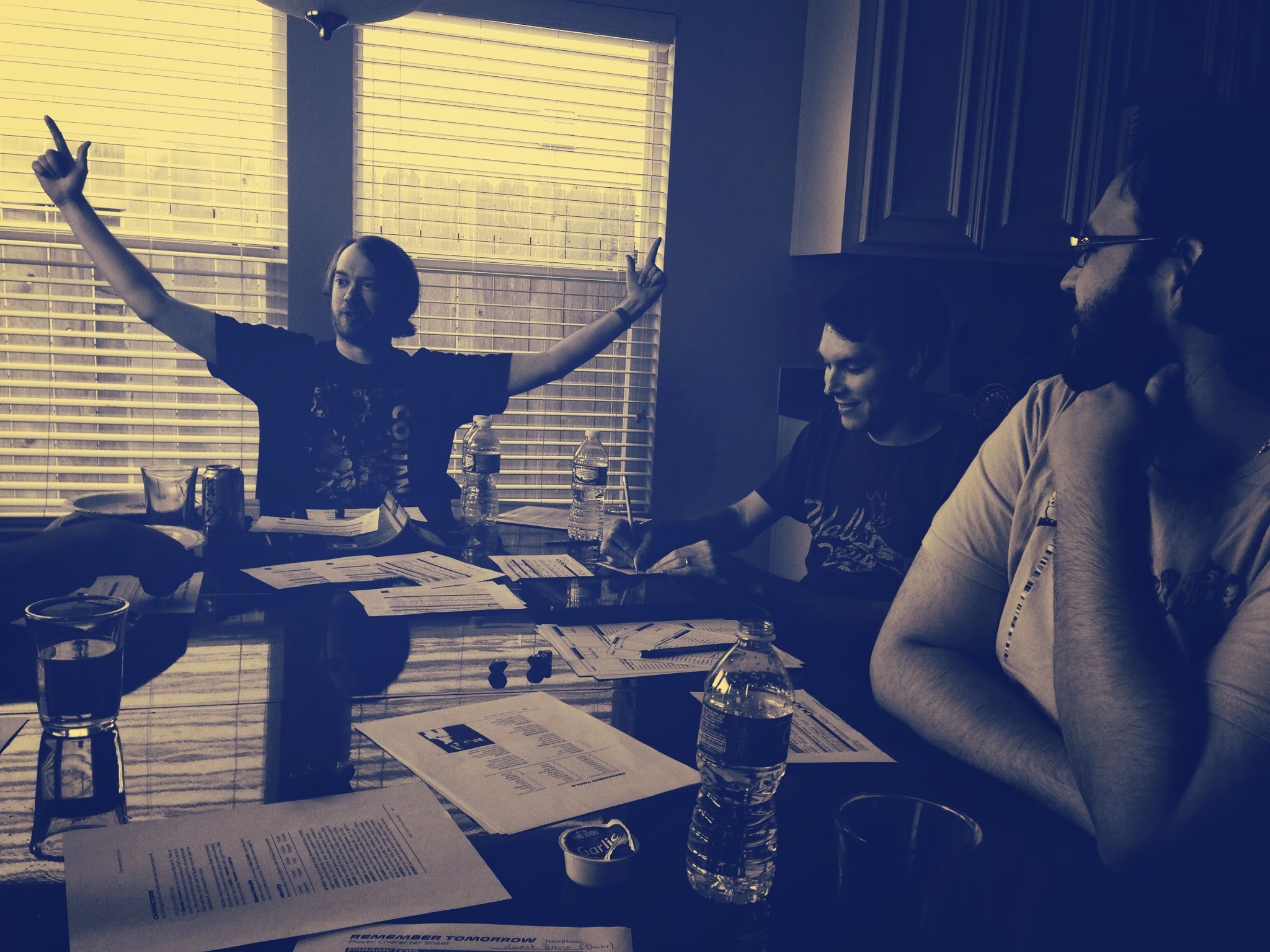
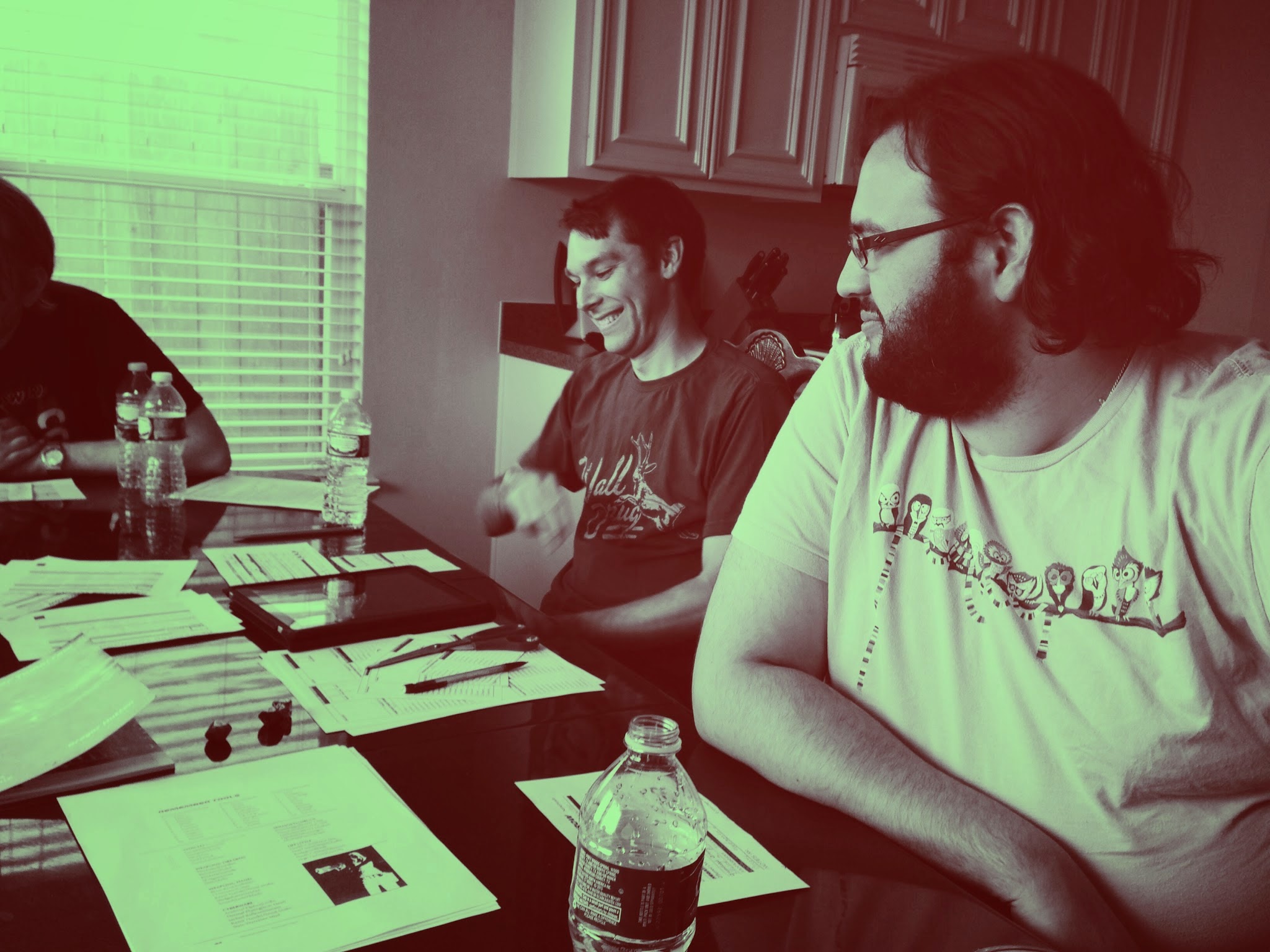
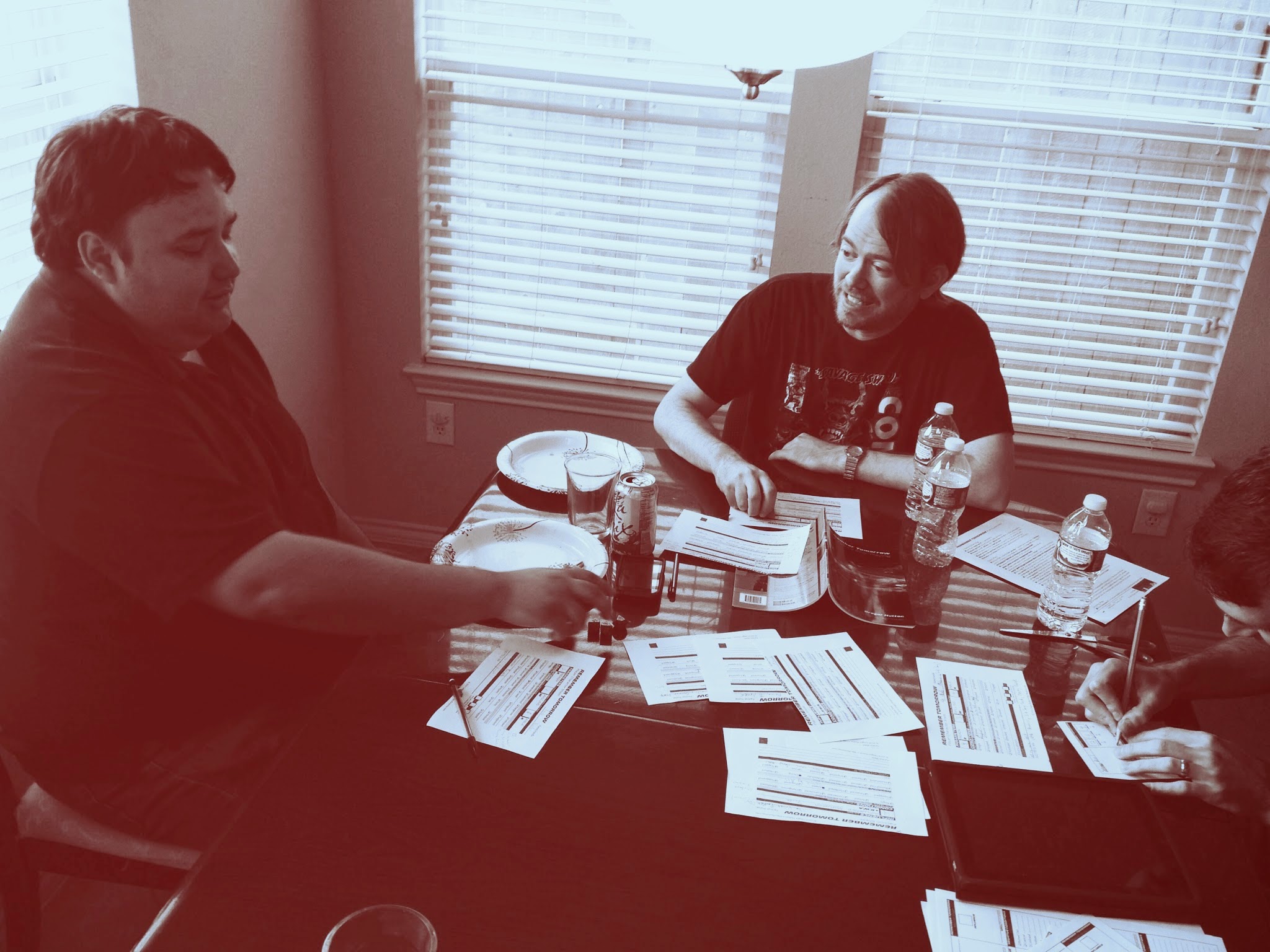

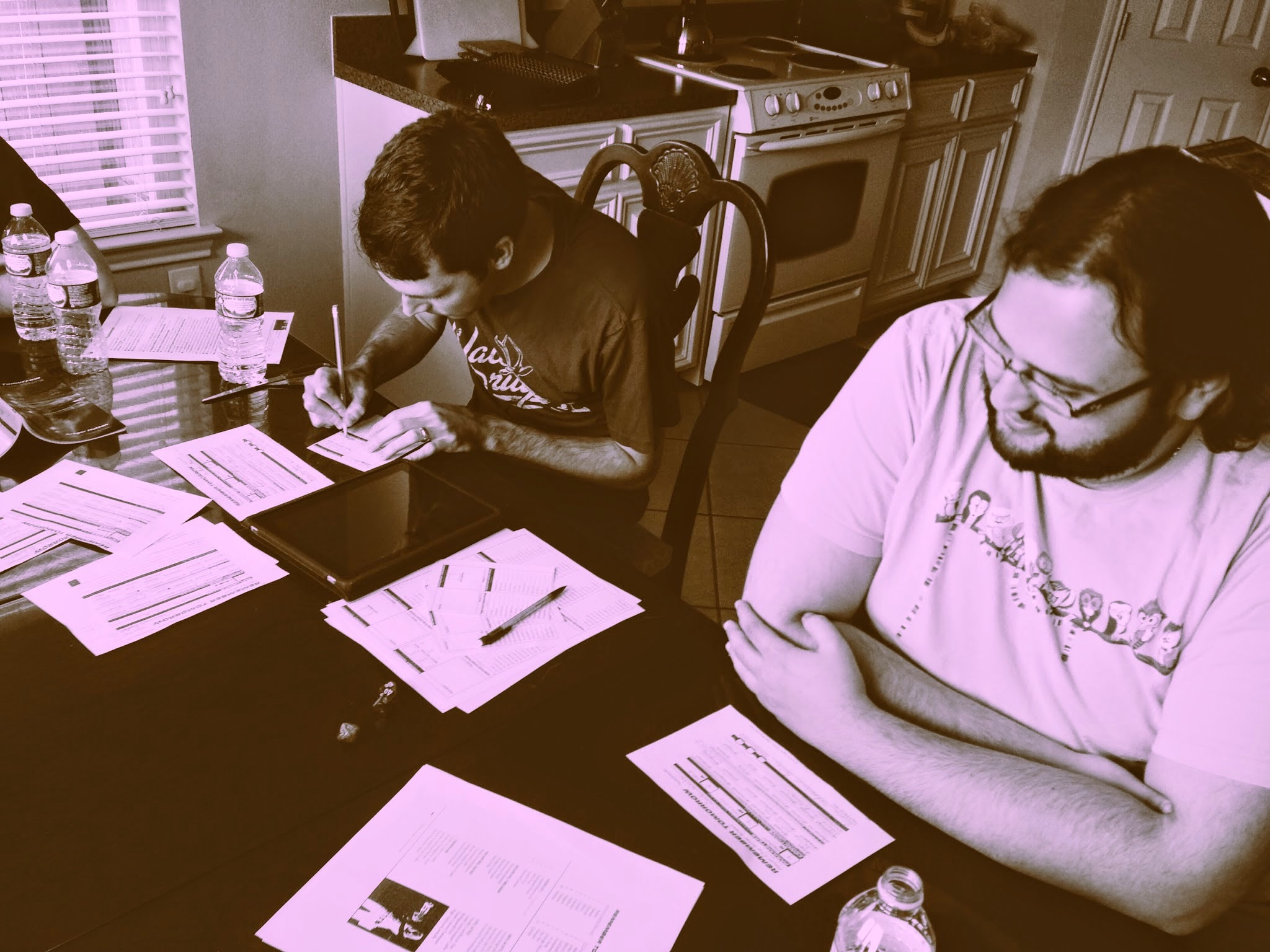
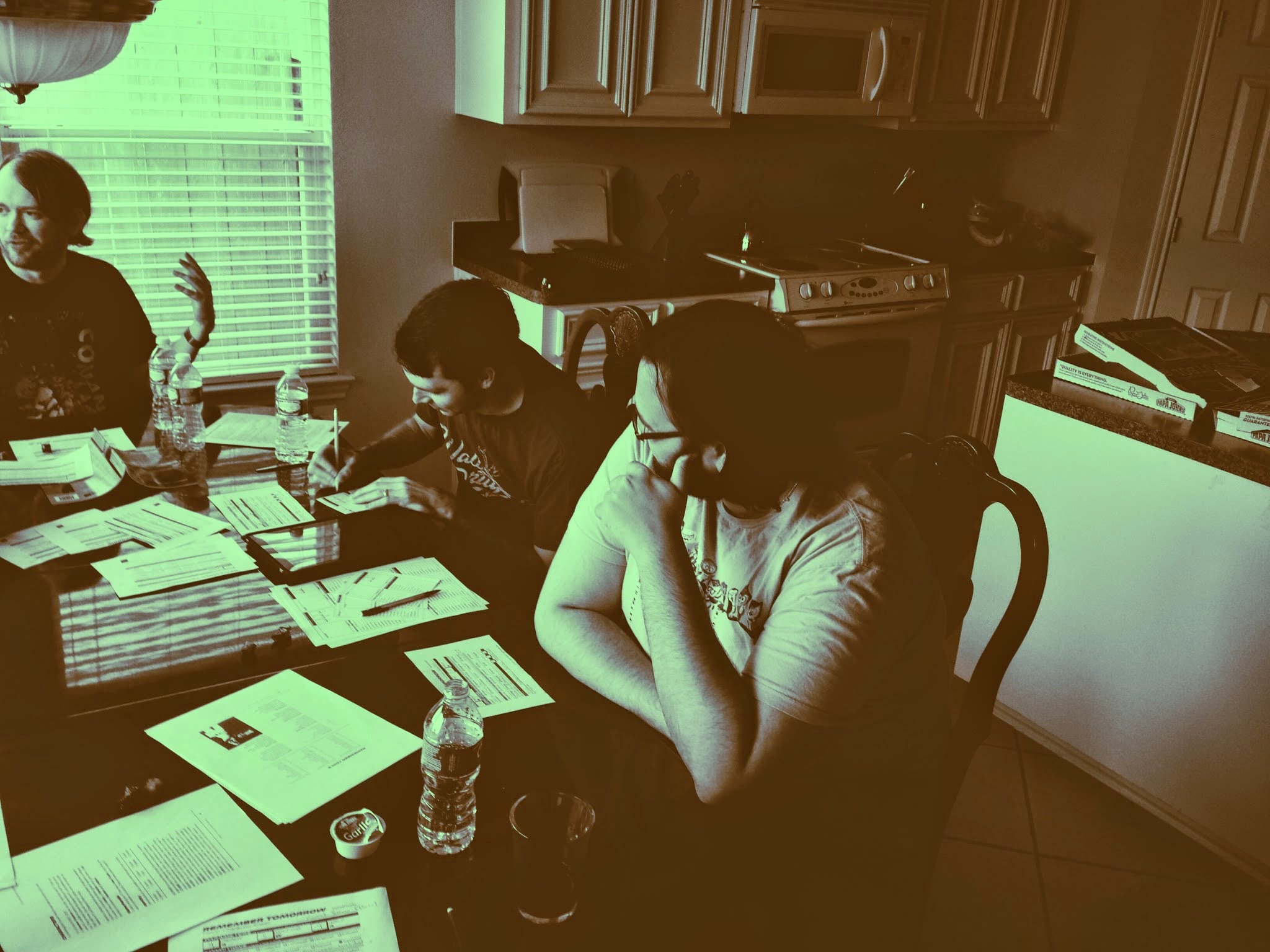
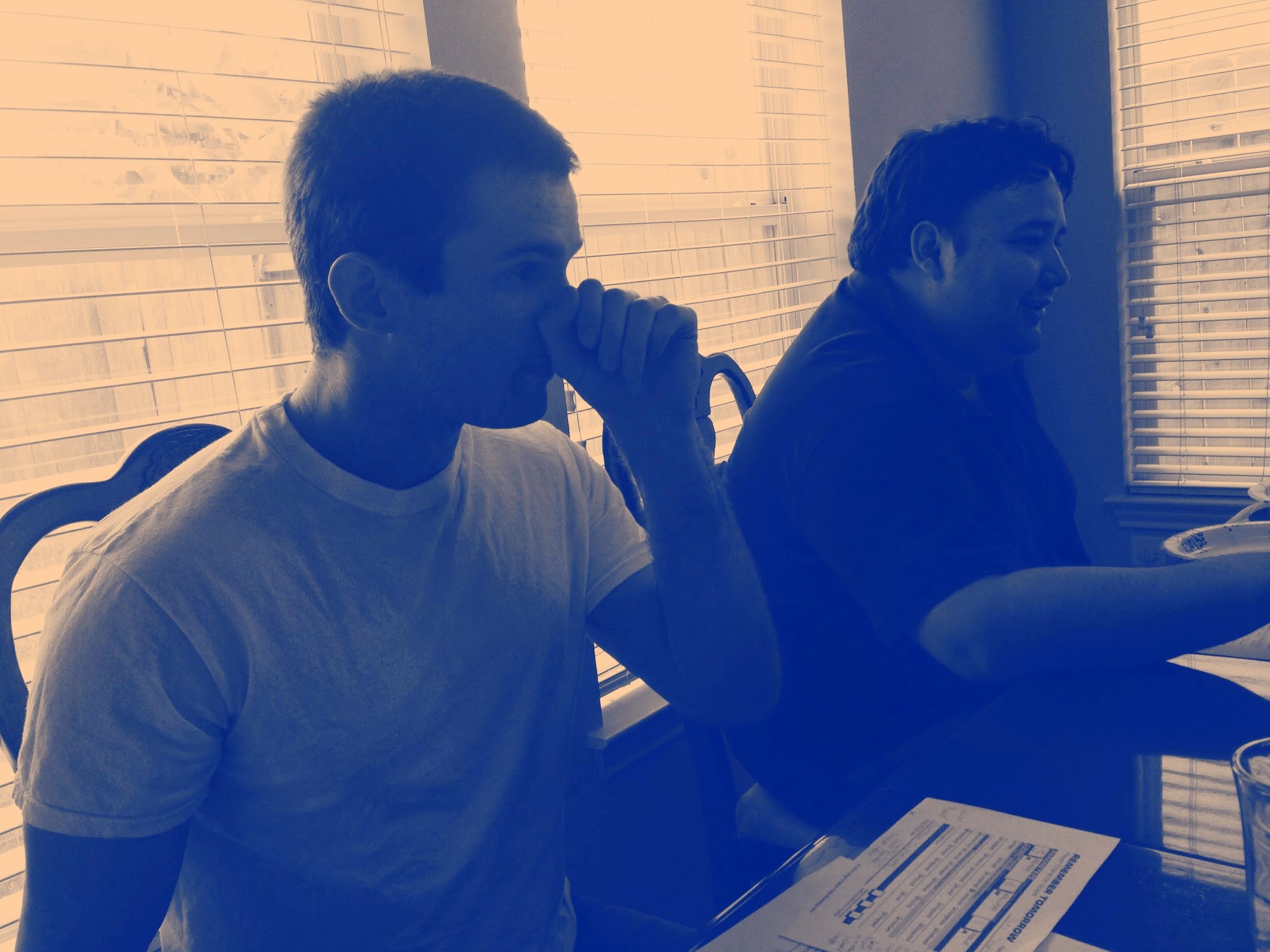
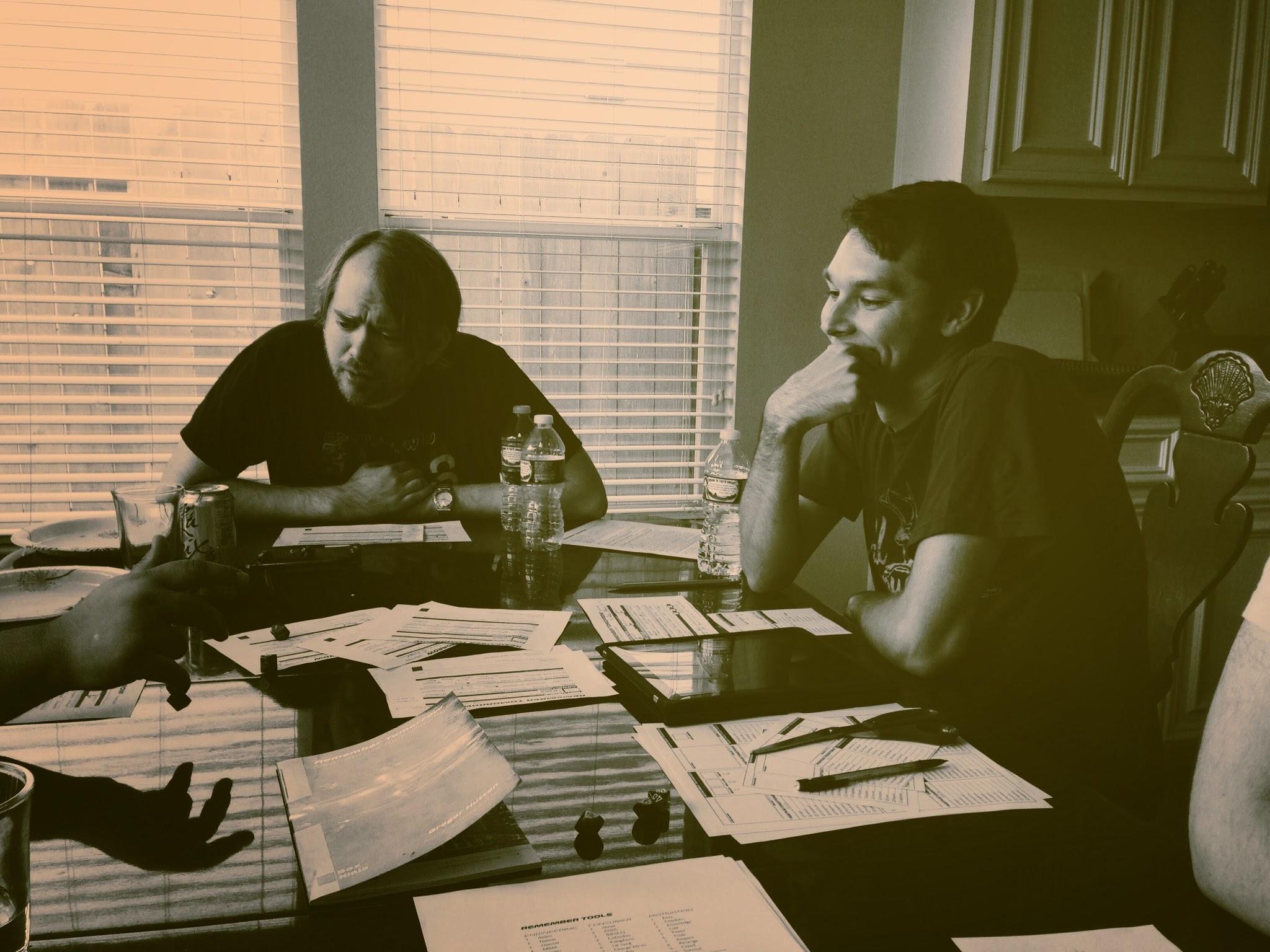
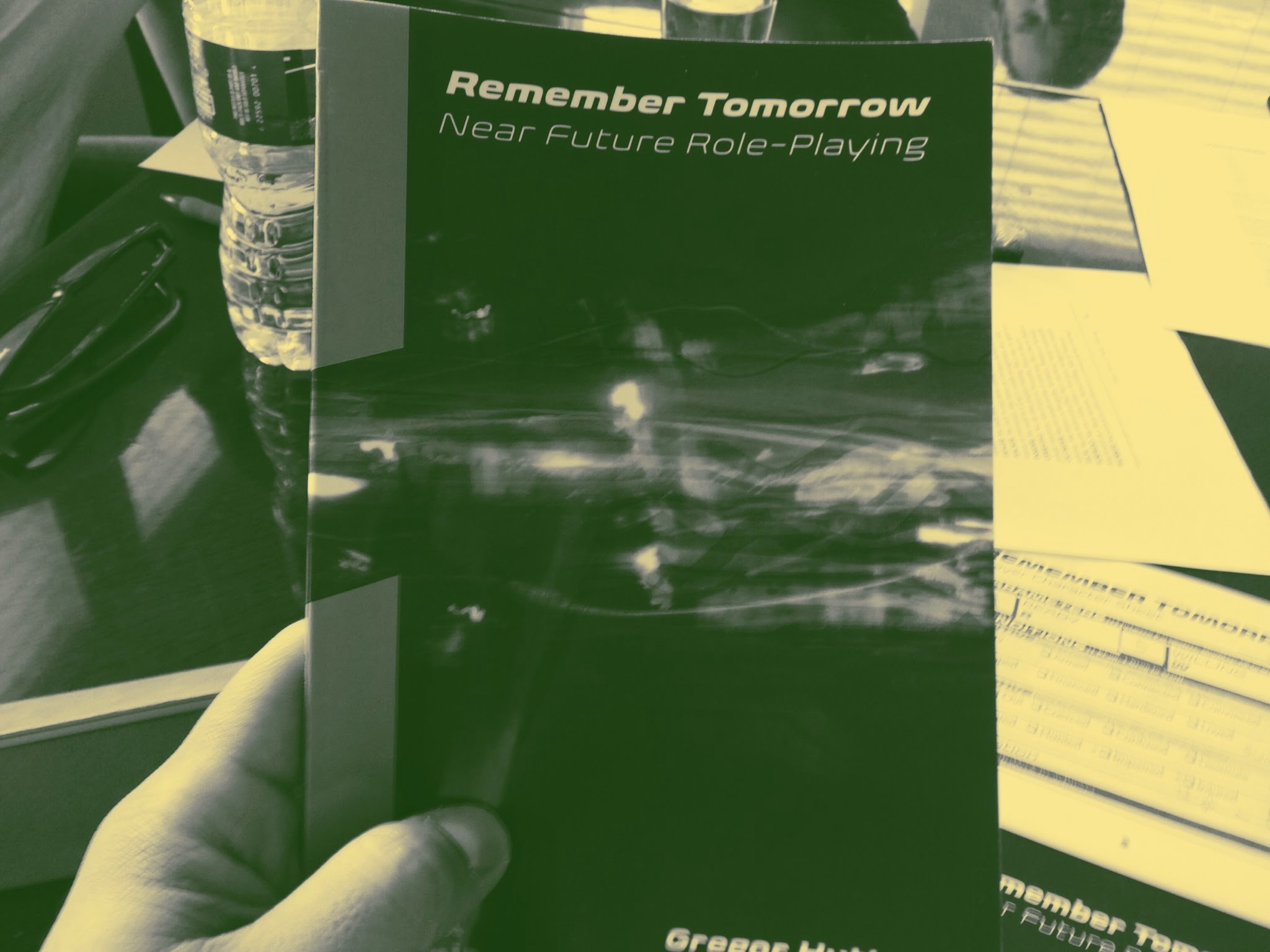

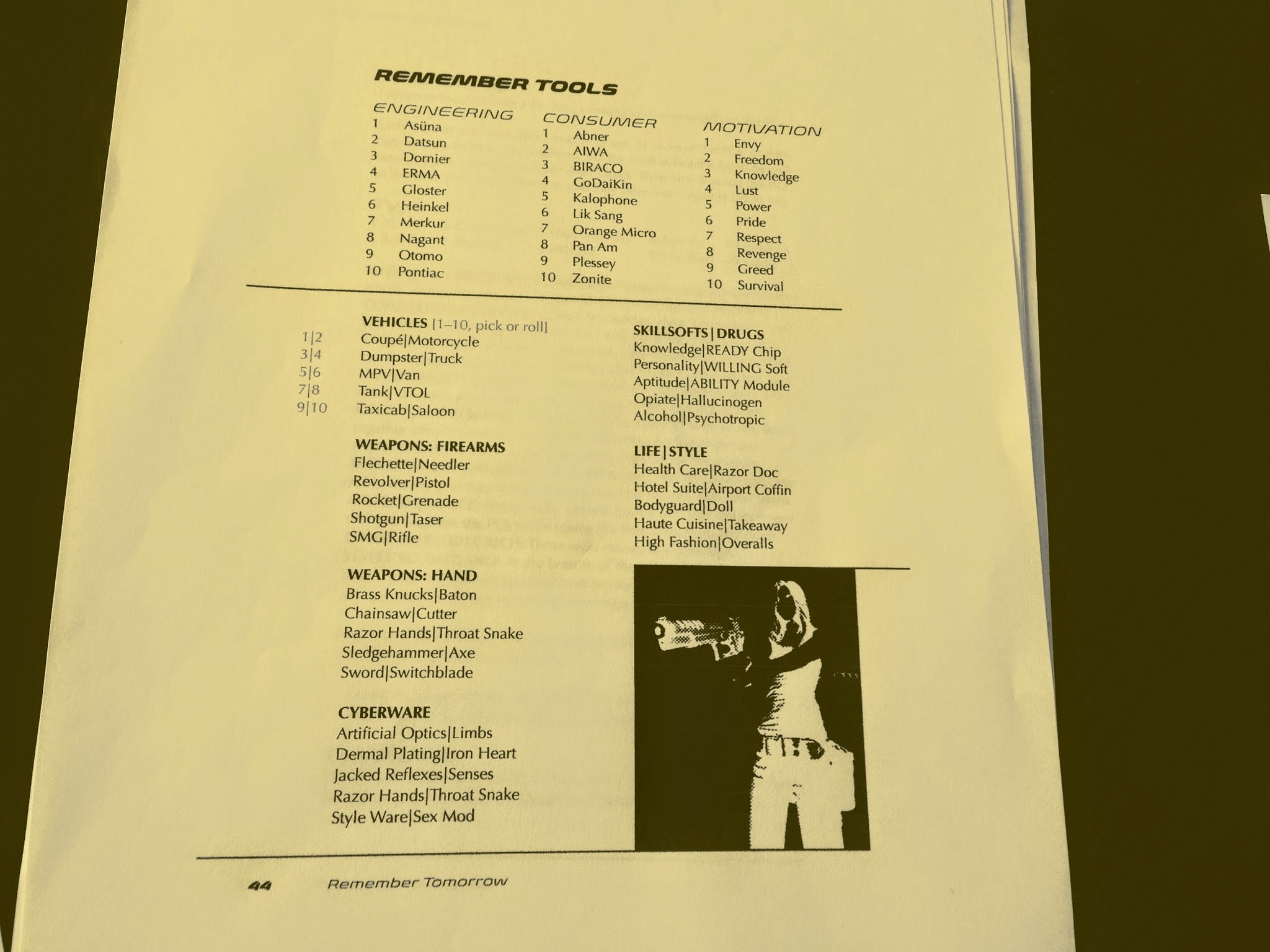

Was sad I had to miss this one. How’d it go?
Was sad I had to miss this one. How’d it go?
Steve Mains I was going to let Daniel Lewis chime-in, since he organized it. For my part, I thought it was pretty damn cool. I’d love to try it again with fewer players.
Steve Mains I was going to let Daniel Lewis chime-in, since he organized it. For my part, I thought it was pretty damn cool. I’d love to try it again with fewer players.
Quick thoughts:
I was a little worried going in the the stat system seemed a bit gimmicky (character stats are ‘Ready’, ‘Willing’, and ‘Able’) but it actually seems like it works well enough.
One of the more interesting things about the system is that rather than setting scenes for your own character, when it is your turn to take control, you set a scene for another player’s character. After hating this aspect of Durance, I was a little skeptical about it here, but I think that we managed to keep the spotlight spread among all of the characters as well as could be expected with 6 players. This mechanic does mean that (with a few exceptions) your characters are much more reactive than proactive. We discussed this a little during the game and people seemed to think that it was genre-appropriate, but I’m still not sold on it being the best choice, gameplay-wise.
I’m always a fan of loose ties between players and characters, so I really like that you can switch to a new character pretty much whenever. It ends up putting a lot of subplots in motion that will never get resolved, but I’m OK with that since it serves to expand the world in interesting ways. This would probably be really cool if you were playing multiple sessions, since you would end up building a world with a ton characters with very well defined motivations and goals.
All in all, it seems like a pretty solid game. I think with 3-4 players, it would be one of the better cyberpunk games out there.
Quick thoughts:
I was a little worried going in the the stat system seemed a bit gimmicky (character stats are ‘Ready’, ‘Willing’, and ‘Able’) but it actually seems like it works well enough.
One of the more interesting things about the system is that rather than setting scenes for your own character, when it is your turn to take control, you set a scene for another player’s character. After hating this aspect of Durance, I was a little skeptical about it here, but I think that we managed to keep the spotlight spread among all of the characters as well as could be expected with 6 players. This mechanic does mean that (with a few exceptions) your characters are much more reactive than proactive. We discussed this a little during the game and people seemed to think that it was genre-appropriate, but I’m still not sold on it being the best choice, gameplay-wise.
I’m always a fan of loose ties between players and characters, so I really like that you can switch to a new character pretty much whenever. It ends up putting a lot of subplots in motion that will never get resolved, but I’m OK with that since it serves to expand the world in interesting ways. This would probably be really cool if you were playing multiple sessions, since you would end up building a world with a ton characters with very well defined motivations and goals.
All in all, it seems like a pretty solid game. I think with 3-4 players, it would be one of the better cyberpunk games out there.
Ahh, sounds very promising. If I’d been able to make it, I could have re-familiarized myself with the book and facilitated a second table so we could have smaller groups.
Ahh, sounds very promising. If I’d been able to make it, I could have re-familiarized myself with the book and facilitated a second table so we could have smaller groups.
Steve Mains As it turns out, Aaron Scott knew how to play, but we didn’t realize how important small groups would be before we started.
Steve Mains As it turns out, Aaron Scott knew how to play, but we didn’t realize how important small groups would be before we started.